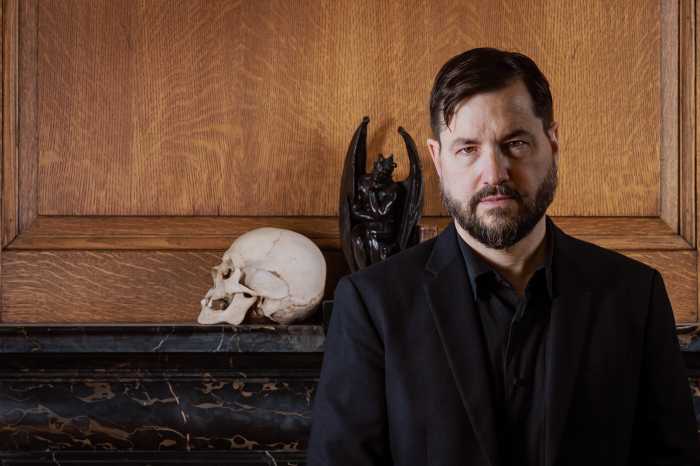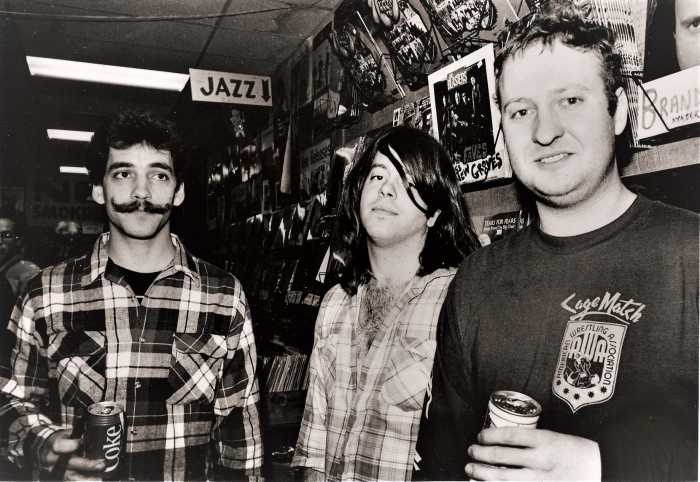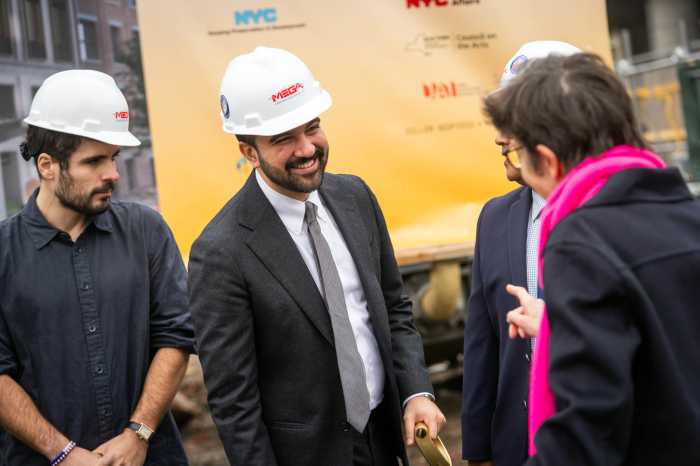Westchester native J. David Jackson, educated at Amherst College and Baltimore's Peabody School of Music, is an affable, confident assistant conductor at the Metropolitan Opera. He has led operas at major theaters and festivals in Europe and the United States, led several world premieres, including Lewis Spratlan's Pulitzer Prize-winning “Life is a Dream,” and is also a working composer.
Jackson has worked with many of the great names in recent opera history, including singers David Daniels, Placido Domingo, Anja Silja, Alfredo Kraus, Mirella Freni, Jose van Dam, and Frederica von Stade and conductors Harry Bicket, Vladimir Jurowski, and James Levine. This season at the Met, he works on six productions.
Jackson spoke with Gay City while preparing for his debut on the Met podium as a full-fledged conductor, taking over the baton from Jurowski to lead Humperdinck's enchanting fairy tale opera “Hansel and Gretel” on Thursday, January 31.
HANSEL AND GRETEL Jan. 31 at 8 p.m.
Metropolitan Opera
Lincoln Center
64th and Broadway
$15-$375; 212-362-6000 Or metopera.org
DAVID SHENGOLD: Are you conversant in the seven languages listed on your CV?
David Jackson: Yes, I am. The degree of fluidity depends on where I am and what I'm doing; when I'm working on an Italian show, I start reading the news in Italian. Plus I'll be conversing with a lot of the singers in the language of the work – except for Latin!
DS: You've done a lot of work with Russian opera; when did that come in?
DJ: It's funny: when I moved to Barcelona, they began rehearsals at 11. Having worked almost four years in Germany where they began at 10, I thought, “I should do something,” so I sought out a school to learn Russian, at that time the only major operatic language I didn't know at all.
One of the things I'm proudest of in my career so far is writing the ending for a masterpiece, “Khovanshchina” [left incomplete by Musorgsky, and completed, variously, by Rimsky-Korsakov, Stravinsky, and Shostakovich, among others] for Brussels in 1996. A great honor. After the premiere, [bass] Anatoly Kotscherga [playing Dosifei, the lead] turned to me crying: “It's so beautiful, it's so Russian.”
DS: How did you get to where you are now?
DJ: After Peabody, I decided I wanted to be specifically an opera conductor, which almost meant starting over. I spent half a year working in Patelson's, the music store behind Carnegie Hall, and then assisted John Mauceri on a couple of productions in Europe. I decided I want to stay there; at the second audition I did, for Kaiserslautern. They asked me to come. My contract said I had to conduct whatever and whenever they wanted me to!
Then I made it to Mannheim, which has the biggest repertory in Germany. And that was absolute hell. In Kaiserslautern we did eight productions a year. Mannheim called me and said, “Okay, in your first week you'll be playing piano for ballet rehearsals for a Kalman operetta, you'll be conducting “Peter Grimes” – which by the way we do in German; you'll have to play “Tristan,” you'll have to play “Butterfly,” and they need you to conduct orchestra rehearsals of “Tosca” – and that was one week! I barely survived, but you grow up and you learn how to do it. I was there a year.
Fortunately, Albin Haenseroth, the intendant from the Liceu heard me play a piano dress rehearsal of “Lohengrin” and I got an invitation out of the blue to come to Barcelona to be a staff pianist. That was 1993-94. Then the theater unfortunately burned up! Just awful. It had the most magnificent, golden acoustics of any theater I know – the wood, and the age, and the space. I love it there, and keep up my ties in Spain.
Then I was at the Monnaie in Brussels for three and a half years, working under Tony Pappano [who now heads Covent Garden in London]. I got to be head of music, making sure the soloists are sovereign in their parts, that the piano staff knows what they need to know and can play it properly. For opera, you don't need to play everything, only need to play what the singer can hear, the harmony and the rhythm. Providing audition pianists, coordinating assignments with the rehearsal and technical departments – a huge job, which Craig Rutenberg does here at the Met. Eventually, things changed in Brussels. About eight years ago I decided to come home.
DS: As a staff conductor, you play rehearsals, work with the cast and covers individually – and sometimes prompt, right
DJ: I haven't ever prompted – at 6' 3 Ãý”, I don't think I could fit in that box! At least 50 percent of the staff conductor job is psychology. You have to very quickly take stock of who's working around you – who needs encouragement, who needs you to lay off. You learn how to speak to the different people you're working with. To speak to singers needs the highest degree of tact – you can point out things they may have forgotten, work on technical glitches; often a single word suffices to get what you need. Then come conductors; then stage directors, who speak theatrical and not musical language, so there's a danger that they'll misinterpret what you're telling them.
DS: How out-and-open do you feel working at the Met?
DJ: It never even occurs to me. It's a nice diversity of people here on the staff. There are parties a few times a year, but everyone is so busy! And the rehearsal process is so intense; even at lunch at the canteen you tend to sit with the people you're rehearsing with. For musicians in the opera world, no one cares – well, people are interested that you're happy, because if you're happy you can make music. Hardly anybody asks. When I've been in a meaningful relationship, I've been happy to talk about it, and show pictures from my wallet, and that's nice.
In Germany I dated a tenor, then a bass, and it was an utter disaster – I'll never date anyone in the business again! There aren't proportionally as many gay conductors as there are gay singers, but we're certainly there. What I am learning from a certain someone in my life at present is lessons in emotional grace, much needed for someone as compulsive as I am.
DS: Please speak a bit about the challenges of “Hansel and Gretel.”
DJ: Humperdinck's score is so rich it's sometimes hard to know “where to turn” in the orchestra. It is always tonally gorgeous, with so many different colors and shifts, even when the texture is simple or one-voiced; so simple but such a feast of color. Vladimir and I were talking the other day about the textures throughout. Sometimes it's like Wagner on steroids – a plethora of leitmotivs, all with their attendant psychological ramifications, but somehow not as clear or purposeful as in Wagner.
When two motives are played in counterpoint it's generally clear, although still rich – rather like eating too much dessert – but when three motives are present simultaneously it's a bit difficult for the ear to keep track, let alone “digest” them all. The Met orchestra is one of the absolute best orchestras in the world, not only in terms of proficiency and ensemble within the orchestra, but in terms of listening to the stage. They are all acutely attuned to the singers, something you do not find in all opera houses.
DS: Only John Hancock, playing the Father, will join the regular cast for your performance. What will you do differently as conductor from Jurowski?
DJ: Well, I will rehearse with John to secure his own phrasing, how the part fits his voice. Overall, the challenge for me will be to preserve the split-second interactions among cast and orchestra that we have worked on, providing the singers with their firm sense of timing and balance, while trying to shape the work slightly differently – perhaps especially in the Preludes and orchestral music. I will not fool around with tempi much – one can't in this situation – but I will try, for example, to bring out the dramatic opposition of the prayer music more clearly; there are several times during the show when this hymn recurs in various choirs, and with good reason. There are so many delicious passages in this score, pure joy to conduct!
David Shengold (shengold@yahoo.com) writes about the arts in many venues.


































